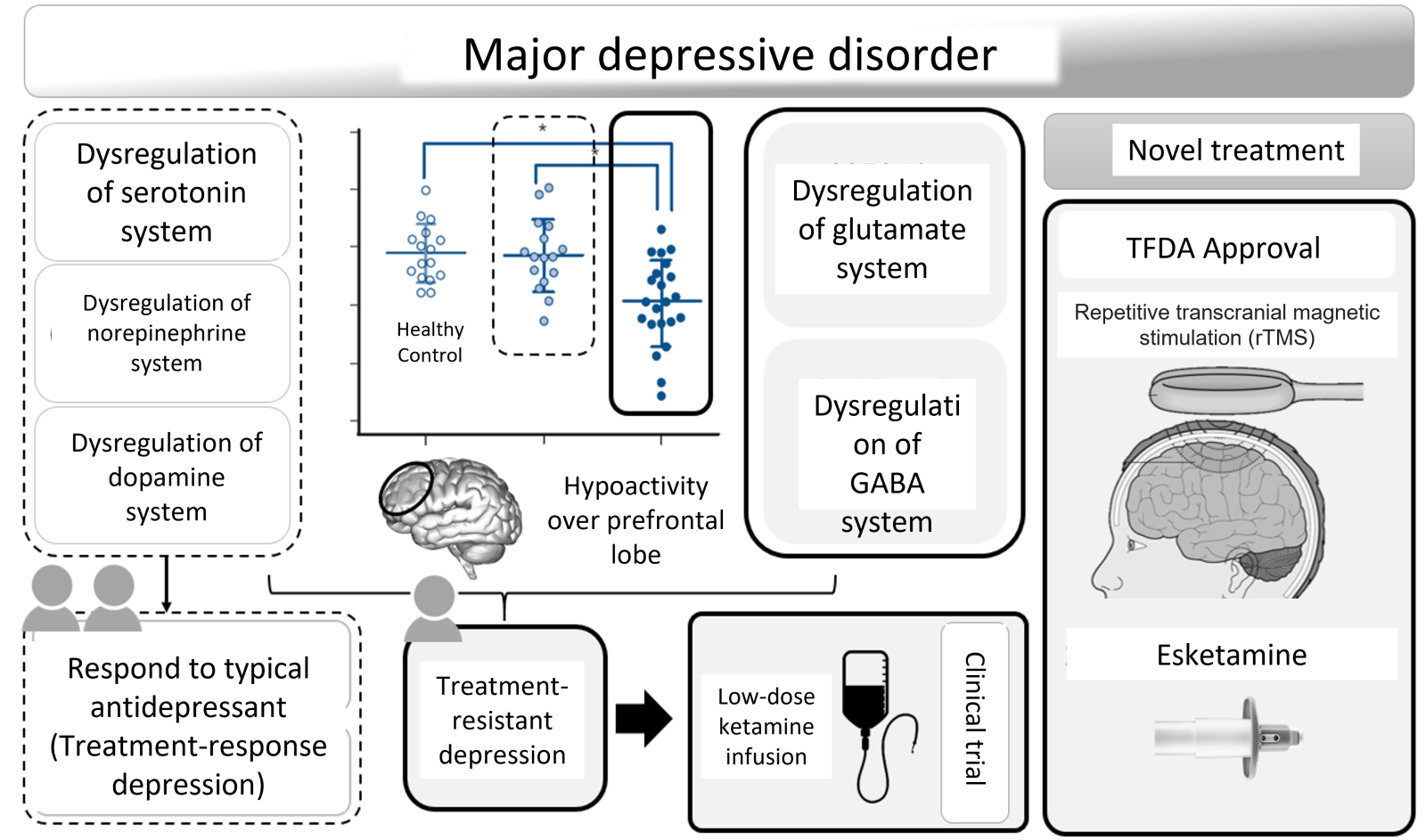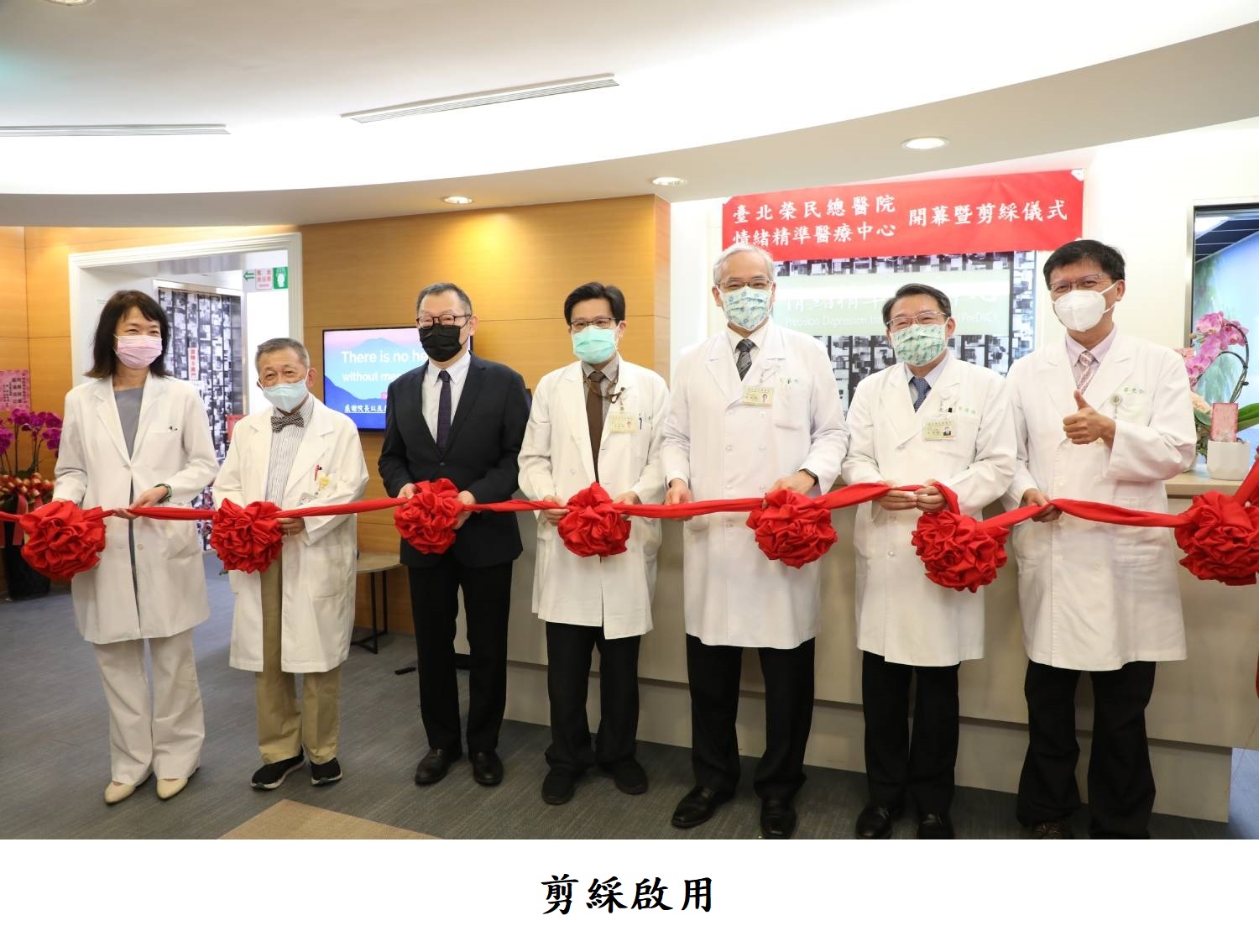
Major depressive disorder (MDD) is a major issue worldwide, which has been projected by the WHO to be one of the most profoundly impacted diseases by 2030. With the advance of medicine, we now consider that MDD is a manifestation of brain dysfunction that poses various symptoms and is sometimes difficult to diagnose. Some may experience depressive mood, anxiety, or loss of interest. Others with underlying MDD or comorbid with MDD, may present irritable mood, dysregulation of the autonomic nervous system, or even general pain for unknown reasons. Therefore, an accurate diagnosis of major depressive disorder or other depressive mood-related disorders is the first step towards successful treatment.

Past studies have found that many patients with major depressive disorder response poorly to pharmacological treatment, categorized as “treatment-resistant depression (TRD).” Therefore, there is a necessity for novel effective antidepressant therapies, such as brain stimulation, Esketamine, and low-dose ketamine.
Among that, repetitive transcranial magnetic stimulation (rTMS) is one of the effective treatments for major depressive disorder and treatment-resistant depression. Taipei Veterans General Hospital is the pioneer of this treatment in Taiwan and is leading the related studies countrywide. We found that there are some patients who still respond poorly to rTMS. Thus, we developed a new form of brain stimulation, called intermittent theta-burst stimulation (iTBS) lead by Professor Cheng-Ta Li. Related research also indicated that, comparing to conventional rTMS, there are more profound and faster changes in neuroplasticity. In addition, the AI-assisted brain image technique and AI-assisted prediction of outcomes of different models of brain stimulation, are not only a key component of successful antidepressant treatment but also a possibility for patients with MDD to achieve remission in a much shorter time.
On the other hand, low-dose ketamine has been seen as an effective antidepressant treatment in many studies. Esketamine was already approved by the Taiwan FDA (TFDA) for patients with major depressive disorder, with depressive episode and suicidal ideation. Taipei Veterans General Hospital is also the pioneer of this treatment, leading Taiwan and Asia, established treatment consensus towards rTMS and Esketamine with various experts worldwide.
The Psychiatric Department of Taipei Veterans General Hospital has been committed to more accurate and effective treatment of depression for many years. With the strong support of the hospital, the Precision Depression Intervention Center (PreDIC) was established in June 2022, which features patient-centered precision medicine and provides individualized precise diagnosis and treatment.

We provide:
|
Precision Medicine for MDD |
Service objects |
|
Individualized treatment plan
|
All ages of patients with MDD Depressive symptoms related mental disorders (etc. bipolar depression) Psycho-oncology Chronic pain and fibromyagia |
The “Precision Depression Intervention Center'' is located on the first floor of the Psychiatry Building:

For more inquiries, contact us.
Precision Depression Intervention Center, Psychiatry Department
TEL: (02) 5570-2205
Open time: Monday to Friday 09:00~12:00 ; 13:30~16:30
Email: vghtpepredic@gmail.com
最後更新: